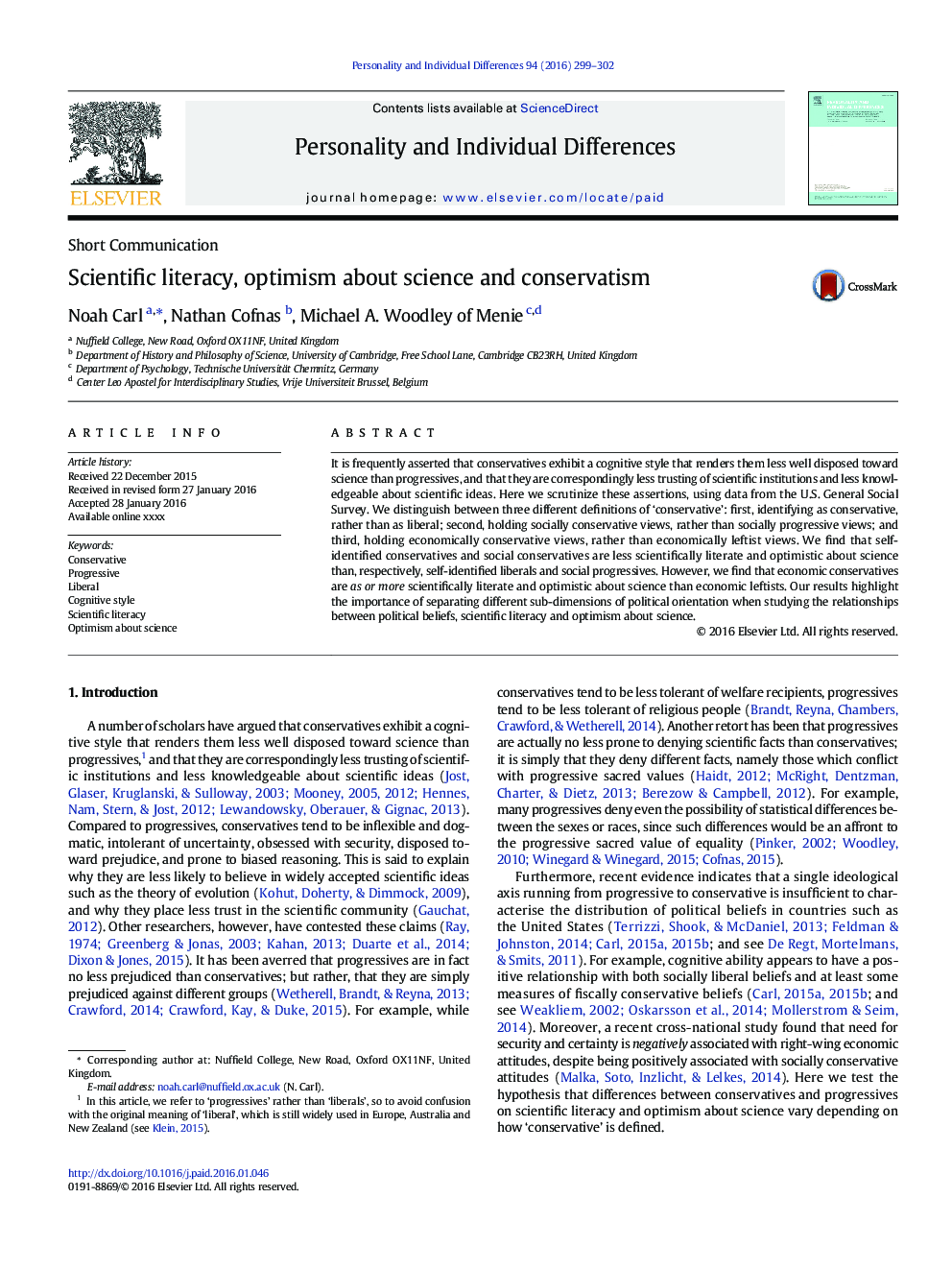| Article ID | Journal | Published Year | Pages | File Type |
|---|---|---|---|---|
| 7250485 | Personality and Individual Differences | 2016 | 4 Pages |
Abstract
It is frequently asserted that conservatives exhibit a cognitive style that renders them less well disposed toward science than progressives, and that they are correspondingly less trusting of scientific institutions and less knowledgeable about scientific ideas. Here we scrutinize these assertions, using data from the U.S. General Social Survey. We distinguish between three different definitions of 'conservative': first, identifying as conservative, rather than as liberal; second, holding socially conservative views, rather than socially progressive views; and third, holding economically conservative views, rather than economically leftist views. We find that self-identified conservatives and social conservatives are less scientifically literate and optimistic about science than, respectively, self-identified liberals and social progressives. However, we find that economic conservatives are as or more scientifically literate and optimistic about science than economic leftists. Our results highlight the importance of separating different sub-dimensions of political orientation when studying the relationships between political beliefs, scientific literacy and optimism about science.
Related Topics
Life Sciences
Neuroscience
Behavioral Neuroscience
Authors
Noah Carl, Nathan Cofnas, Michael A. Woodley of Menie Michael A. Woodley of Menie,
